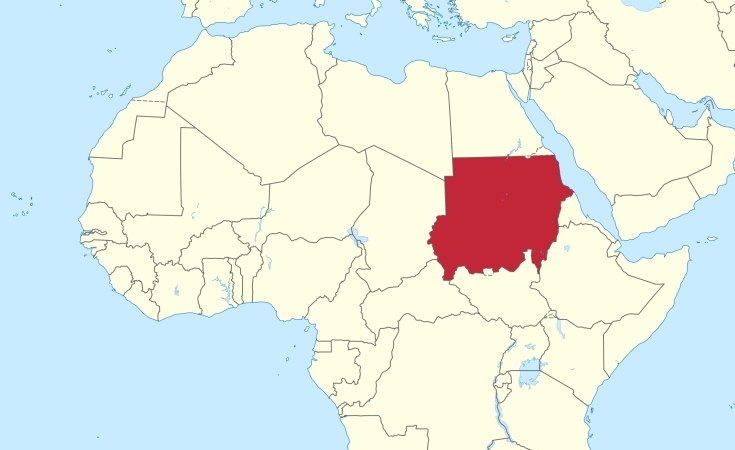At least 350 people have died and thousands have been wounded since fighting between the Sudanese army and the paramilitary RSF erupted on the weekend.
Sudan's paramilitary Rapid Support Forces (RSF) announced they had agreed a 72-hour humanitarian truce from 6 a.m. local time (0400 GMT) on Friday to coincide with the Muslim holiday Eid al-Fitr.
According to the RSF, the truce was meant to create humanitarian corridors to allow civilians to evacuate and reunite with their loved ones.
There has been no official response from the Sudanese army.
UN cease-fire call
The power struggle between Sudan's army chief, General Abdel Fattah al-Burhan, and RSF leader General Mohamed Hamdan Daglo, also known as Hemeti, has already claimed 350 lives.
Early Friday, bombing and artillery shelling rang through the streets of Sudan's capital, Khartoum, despite behind-the-scenes truce negotiations.
UN Secretary-General Antonio Guterres called for a cease-fire on Thursday to enable safe passage of civilians.
A coalition of civil groups had announced that they had put forward a three-day truce proposal to the rival sides, and that they had responded favorably. "We welcome the positive position of the leadership of the Sudanese Armed Forces and the Rapid Support Forces (RSF)," the group said.
'No option but decisive military action'
However, as battles raged, Burhan dismissed any prospects for negotiations with Daglo, telling broadcaster Al Jazeera that he saw no option but "decisive military" action without "any room for talks over politics."
Daglo said the RSF's agreement to stop fighting for the Eid holiday was purely to allow civilians to get to safety. "We are talking about a humanitarian truce, we are talking about safe passages ... we are not talking about sitting down with a criminal," he said, referring to Burhan.
In his first speech since the outbreak of fighting a week ago, Burhan said in a video message Friday that the military remained committed to a transition to civilian rule, but he made no mention of a truce.
"We are confident that we will overcome this ordeal with our training, wisdom and strength, preserving the security and unity of the state, allowing us to be entrusted with the safe transition to civilian rule," he said.
Baerbock appeals for peace
Germany's foreign minister, Annalena Baerbock, appealed for a cease-fire on Thursday, "so that people can get to safety and NGOs can provide much needed humanitarian aid."
"Our message to Generals Burhan and Hemeti is clear: the violence in Sudan must end."
Guterres, echoing similar sentiments, said, "There was a strong consensus on condemning ongoing fighting in Sudan and calling for cessation of hostilities as an immediate priority."
The latest pleas came after another cease-fire collapsed on Wednesday. Several attempts at a truce have failed since hostilities broke out on Saturday.
Desperate situation
Thousands of civilians have fled the fighting, with many refugees taking shelter in villages along the border in Chad.
In Khartoum, tens of thousands of people are trapped in their homes, without electricity, food or water.
"Families are running out of supplies and the water supply has collapsed, but every walk out the door is life-threatening. In addition, markets have been burned down and supply routes from the capital Khartoum are blocked," said German aid agency Welthungerhilfe's secretary general Mathias Mogge.
Even before the conflict, around a quarter of Sudan's population was facing acute hunger
The situation is worsening for civilians, with reports of dead bodies scattered in the streets.
Medics have warned of a catastrophe, especially in Khartoum, where many hospitals were caught in the crossfire.
How did the violence start?
Following the popular uprising that helped topple long-time ruler Omar al-Bashir four years ago, the country had been on a path to establishing democratic rule.
Under al-Bashir, Sudan was internationally isolated and on the US terrorism list.
Burhan and Daglo jointly carried out a coup in 2021, purging civilians from a transitional government. They had promised to shepherd the country until a new government was elected. However, both sides have failed to sign political agreements that would see their institutions lose power.
The latest eruption of violence came after weeks of rising tensions between the two generals over an international push for a new civilian government.
Each side has accused the other of obstructing the transition.
ss/nm (Reuters, AFP, dpa)


